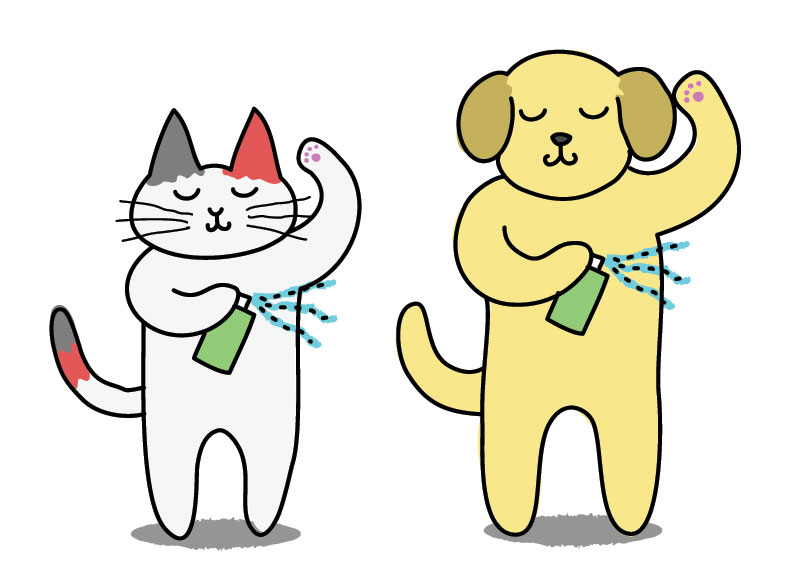
Rhonda Scharf looks at some kinder ways to relate… well, it’d be rude not to!
Last week I met Ani at a workshop I was giving. Ani is a very direct communicator and she feels strongly that her own blunt style of communication is best. She has no intention of changing her style and, in fact, has many reasons why she won’t change.
She told me about a co-worker who has a body odour problem. Ani flat out told him that he “stinks”. She was very surprised when I questioned her approach to the situation.
She told me that her colleagues often complain about her negativity and the fact that she habitually points out what other people are doing wrong. She has many explanations about why she communicates this way but at the end of the day, they are all just excuses. She doesn’t want to change and she expects others to just accept that she has a sharp tongue. She says they just have to understand that that’s the way she is.
Have you ever said, “That’s just the way I am”? Have you ever used excuses to explain why you shouldn’t have to change and why other people should just accept you the way you are?
See if any of these excuses sound familiar:
- I’m always late. It will never change, you’ll just have to get used to the fact that I don’t run on the same clock as everyone else.
- I’m too old to worry about my appearance. This is the natural me, and worrying about my clothes and hair is too much of a bother. Love me like this, or don’t love me at all.
- I’m a naturally creative person and I like to work in a chaotic environment. I shouldn’t have to clean up my desk just because other people think I’m messy.
- I wasn’t taught computers and technology in school and I don’t think I should have to learn about them.
- I like things done my way. I’m not inconveniencing anyone by changing things over to my way, so why do they care?
- I’m too old to change.
- My way is better. If I just show you the right way you can learn, too.
- I don’t need any more friends, so why should I be friendly at work?
I realize that there are some things that are personality-driven. Some people are good with details and some aren’t. Some people are very direct in their style of communication, and some people take forever to get to the point.
And yes, our styles come to us naturally. However, I don’t think that means that other people have to accept us as “just the way we are” when in reality we can teach ourselves to be more aware of how our words and actions are interpreted by others.
We always need to be aware of the impact our words and actions have on other people.
Take Ani’s co-worker with body odour. When I pointed out to Ani that her blunt statement about him stinking was rude, she didn’t agree. She said that he had to know that he stank and needed to be told to fix it immediately. When I pointed out that he probably didn’t know he even had a body odour issue and was more than likely mortified to be informed of it, she said that her way of dealing with things was efficient.
I asked her if she cared that she had embarrassed her co-worker. Her response was to give me all kinds of excuses to justify her behaviour. She said things like: She wasn’t born here, he is too sensitive, hinting around the issue was never going to work, she’d asked HR to take care of it and they clearly didn’t, and on and on.
The bottom line is that she doesn’t want to change, and she isn’t concerned about her co-worker’s feelings. Nothing I can say will make her see that there are negative consequences to her actions, and that her blunt communication style is likely affecting her career. Ani is justifying why she shouldn’t change, when the real issue is that she doesn’t want to change.
I couldn’t work with, or be a friend of, Ani’s. It matters to me how my words and actions are seen by others. I don’t ever want to insult people or be intentionally rude. And I certainly don’t want to hide behind a wall of excuses. Not everything about me is perfect, and those situations in which I do need to adjust “me” are not easy. But just because something is difficult doesn’t mean that I shouldn’t do it.
Do you make excuses for your poor behaviour?
The bottom line is: we all have a choice about how we treat others, and excuses just don’t cut it.













Thanks Rhonda for the interesting article!
I don´t like to be rude to others, and don´t like to receive rudeness either, but have always received plenty of it from the people who are supposed to be my biggest protectors (parents).
I have occasionally said things (unintentionally) to others which have the potential of being interpreted as offensive comments, and I usually realize this upon analysis after it´s been said…I would NEVER blurt out to someone that they have a “stink” problem! I do know many people who are like Ani, though!
Regards,
Hope
I’m autistic, it’s just how I am. If I cannot act like a NT and cannot correct what is invisible yet “wrong” with me, is it still a choice and an excuse in your opinion if when miss-steps happen in my life (on both sides) that I explain my situation to others? (minus blurting out descriptions and observations)